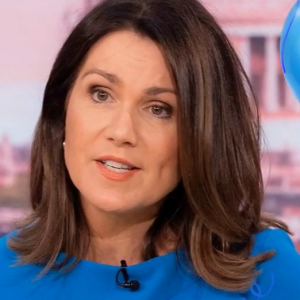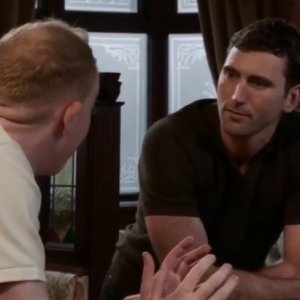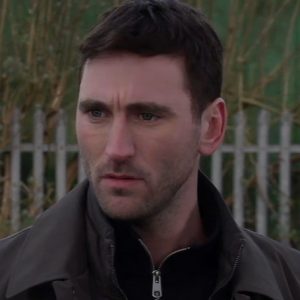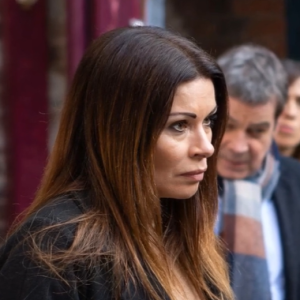(Weatherfield Globe Exclusive – In the dramatic style of Coronation Street)
In a political clash that sent shockwaves through living rooms from Weatherfield to Westminster, the nation found itself glued to its screens this morning as ITV’s Good Morning Britain transformed into a gladiatorial arena. The air crackled with tension, not unlike the fraught atmosphere in the Rovers Return during a particularly spicy family feud, as Labour’s Housing Minister, Matthew Pennycook, found himself unequivocally skewered by the formidable and unyielding Charlotte Hawkins. This wasn’t just a political debate; it was a characteristically British, emotionally charged confrontation, a plot twist worthy of the most gripping Coronation Street storyline, exposing raw nerves and the precarious tightrope of public trust.
The title alone – “Very Sad 😭 News: Labour Minister Stuttering Moment Skewered by Furious GMB Presenter!” – painted a vivid picture of the dramatic spectacle that unfolded. Viewers, perhaps sipping their builder’s tea on the edge of their sofas, bore witness to a high-stakes interrogation concerning one of the most contentious issues facing the UK today: the escalating crisis of illegal migration. The stage was set, the cameras rolling, and the nation collectively held its breath as Hawkins, embodying the exasperated voice of the people, launched her blistering attack.
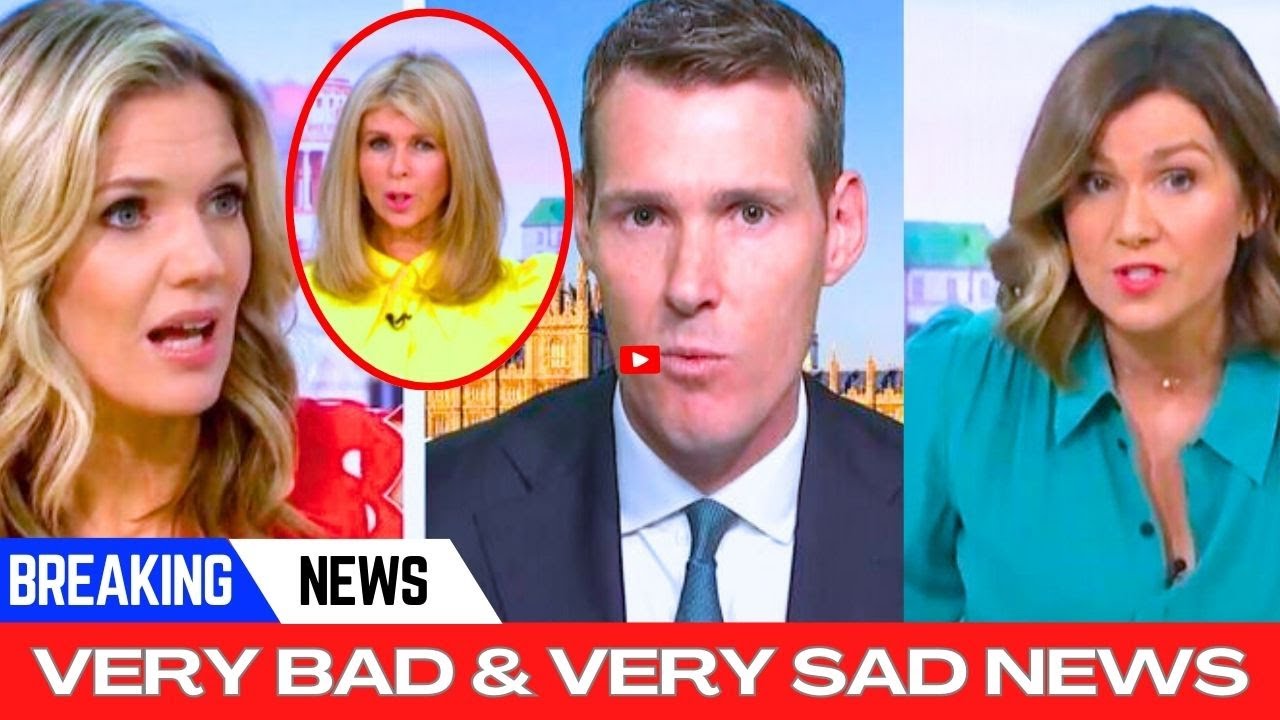
The catalyst for this explosive encounter was a preceding segment featuring Zo Ysef, who had outlined Reform UK leader Nigel Farage’s astonishing plans for the mass deportation of hundreds of thousands of illegal immigrants should his party triumph in the upcoming election. This dramatic shadow loomed large over Pennycook’s interview, setting a fierce precedent. Charlotte Hawkins, known for her sharp intellect and an uncanny ability to cut straight to the heart of the matter, did not mince words. Her opening salvo was a direct hit, laced with a palpable sense of public frustration. “You not being tough enough on immigration is pushing people towards Reform UK, isn’t it?” she declared, her voice resonating with an unshakeable conviction that mirrored the anxieties brewing in communities across the country. It was a question that demanded an immediate and robust answer, yet what followed was a moment that could define the minister’s public perception.
Matthew Pennycook, looking visibly under pressure, attempted to parry the blow. His response, initially measured, began to show the strain of the intense scrutiny. “No, we are taking the practical, hard-headed, admittedly unglamorous steps required to bring this global challenge under order,” he articulated, but for a fleeting, dramatic second, a flicker of hesitation, a slight stuttering moment, seemed to catch in his voice. It was subtle, perhaps, but in the unforgiving spotlight of live television, such a perceived vulnerability can speak volumes, hinting at the immense weight of the portfolio he carries. This was the precise instance that transformed a rigorous political exchange into a dramatic character study, a moment of human frailty against a backdrop of immense policy challenge.
The Labour MP then pivoted to attack Reform UK’s proposals, dismissing them as lacking seriousness. He specifically targeted their pledge to negotiate return agreements with nations often deemed hostile or uncooperative, singling out Afghanistan and Iran. “What happens if Afghanistan don’t agree to a returns agreement? Where do the planes go? Or if they do agree, how much are we going to be paying them for the privilege?” Pennycook snapped back, his voice regaining some of its steel, the defensive edge now sharp and clear. This was the political equivalent of a dramatic, last-ditch effort to turn the tables in a courtroom drama, attempting to expose the perceived flaws in the opposition’s grand promises.
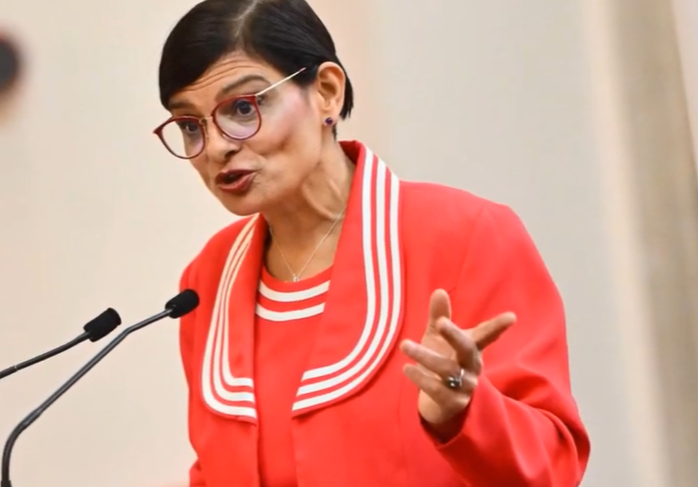
But Charlotte Hawkins was not to be deterred. With the precision of a seasoned detective, she interjected, reminding the minister of Farage’s suggestion of “a financial incentive” to ensure these deportations, whether back to their country of origin or to a third nation. Pennycook, now visibly exasperated, questioned the practicalities of such a scheme, highlighting Labour’s own “groundbreaking pilot scheme with France” as a tangible, albeit less sensational, achievement. His frustration boiled over as he delivered a passionate, almost furious, denunciation of Reform UK: “He fumed the idea that Nigel Farage and the circus that are Reform come in and negotiate returns agreements that are operable with some of the most hostile regimes in the world. I think frankly is for the birds.” The language was colourful, dramatic, and indicative of the raw emotion simmering beneath the surface of political decorum – a prime example of the kind of fiery rhetoric that could set tongues wagging down the Rovers.
Unyielding, Charlotte turned the focus back to Labour’s current performance, channelling the anxieties of the public watching at home. “People at home who are worried about the situation and they see the statistics, record numbers crossing in small boats and the Labour government not doing enough to tackle that,” she stated, her gaze unwavering. Pennycook, seemingly caught between defending his party’s progress and acknowledging the public’s despair, disagreed with the premise. This prompted Charlotte to deliver a searing, direct question: “You think you’re doing enough?” It was a moment of profound tension, a direct challenge to the minister’s conscience and competence.
Pennycook hit back, attempting to contextualize the challenge. “It is taking time to turn around the broken immigration and asylum system we inherited. We are taking the necessary measures to bring this challenge under control. It won’t happen overnight. We’ve been honest about that, but we are making tangible progress.” He listed examples, including Labour’s efforts in deporting over 35,000 individuals and the aforementioned agreement with France. But before he could fully articulate his defence, Charlotte, sensing the prevailing mood of public skepticism, cut him off. Her next line was perhaps the most devastating blow of the entire exchange: “You might say that, but you’ve already lost the public’s trust on this issue.”
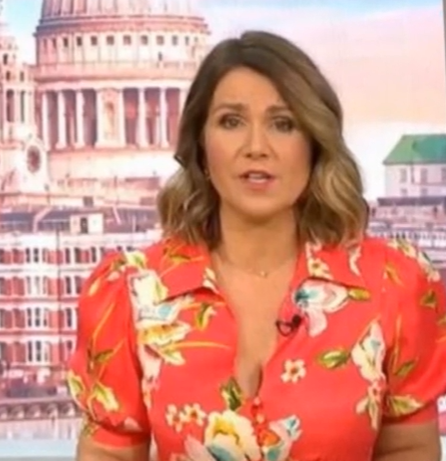
The impact of this statement was palpable, a dramatic pronouncement that reverberated with the weight of popular opinion. It was the kind of verdict that could change the course of a political narrative, a moment of truth delivered with unsparing clarity. Matthew Pennycook, for his part, admitted he understood why communities felt “frustrated by the pace of change,” a rare moment of concession in the cut and thrust of political debate. Yet, he stood firm in his belief that no quick fixes existed, doubling down on his party’s pragmatic approach and dismissing Reform UK’s promises as “unworkable gimmicks” that “don’t stack” up.
As the segment drew to a close, the sense of unresolved tension hung heavy in the air. The dramatic confrontation between Charlotte Hawkins and Matthew Pennycook served not only as a snapshot of a nation grappling with a complex crisis but also as a powerful piece of political theatre. It left viewers pondering not just the intricate policies, but the very character and resilience of those tasked with governing. The debate on Good Morning Britain was more than just news; it was a gripping, character-driven drama, reflecting the anxieties and frustrations that resonate deeply within the heart of every community, from the bustling streets of London to the familiar, rain-swept cobbles of Coronation Street. And as the credits rolled, one could almost hear the murmurings of agreement and disagreement echoing from every household, a testament to the enduring power of televised drama, political or otherwise.
